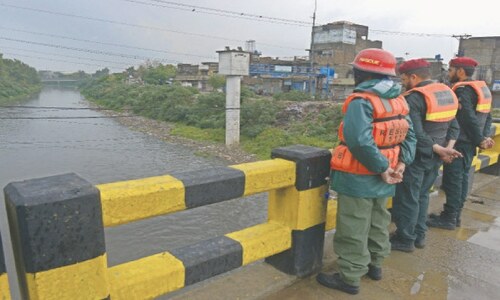ISLAMABAD: The Islamabad High Court (IHC) has scrapped a newly-introduced policy for the selection of community welfare attaches (CWAs) for 12 foreign missions in Europe, USA, UK and other parts of the world.
The Ministry of Overseas Pakistanis and the Human Resource Development changed the selection criteria by amending the policy. Under the changes, officers required to secure 40pc marks in interview and 60pc marks in written test to qualify for the foreign posting.
Previously, a candidate required 20pc in interview and 80pc marks in the written test.
Interestingly, applications were sought under the previous policy and the candidates qualified the written test in accordance with the policy introduced in 2016.
However, the overseas ministry in December last year changed the selection criteria after the candidates had qualified the written test.
Subsequently, some candidates challenged the recommendation of the interview committee not to appoint them against the posts of community welfare attaches in Pakistan’s diplomatic missions abroad.
Furthermore, the petitioners assail the retrospective application of the amendments approved by the prime minister in the “Policy guidelines for foreign appointments and postings in Pakistan’s diplomatic missions abroad and against Pakistan’s seats in international, multilateral, bilateral and regional organisations, fora and bodies.”
Shahid Mehmood Khokhar, the counsel for the petitioners, adopted before the court that on October 27, 2019, the overseas ministry published an advertisement inviting applications for the selection of CWAs under the 2016 selection policy.
He said as per the contents of the advertisement, the written test was to be conducted by the Institute of Business Administration (IBA), Karachi, on Nov24.
He said under paragraph viii of the 2016 policy, 80pc weightage would be given to the written test scores and 20pc to the interview scores whereas paragraph ix provided that no minimum passing marks shall be fixed for the interview and no candidate would be deemed to have failed in the selection process merely on the basis of their performance in the interview.
He said the ministry moved a summary for the prime minister, proposing an amendment to the 2016 policy under which the minimum passing marks for the interview shall be 60pc and that candidates scoring less than the required threshold shall be deemed to have failed to qualify for the posts.
According to him, the Establishment Division had not agreed with the proposal of the ministry. However, on Dec 10, the prime minister approved the proposal.
IHC Justice Miangul Hassan Aurangzeb observed that there was no fetter on the government in amending its policies and the superior courts had generally exercised restraint in interfering with the policy-making domain of the executive while exercising its power of judicial review of administrative actions.
The reluctance of the superior courts to judicially examine administrative decisions involving policy considerations has time and again been emphasised in the cases.
He observed that now the judicial review of administrative actions is a well-established norm.
It is permissible on the ground of illegality or irrationality or procedural impropriety. But it is also well settled that administrative decisions involving policy considerations have been put on a different pedestal.
Though they are not totally immune from judicial review, certain grounds, which are available in the case of administrative decisions not involving policy considerations, are not open for challenging the policy decisions.
The court noted that when the petitioners sat in the written test, they did so bearing in mind that their result in the written test would play a dominant role in the appointment process. Their endeavour to obtain good marks in the written test was on the basis of the 2016 policy providing for 80pc wheightage to be given to the written test scores and for their performance in the interview not to result in their ouster from competition.
“I am of the view that such amendments, which were made after the competitive process had commenced and the petitioners had qualified the written test, cannot be given retrospective effect by making them applicable to the process,” observed Justice Aurangzeb.
The judge declared that the policy introduced by the government after the candidates qualified the written test cannot be applied for the selection of CWAs. He directed the government to deal them in accordance with the 2016 policy.
Published in Dawn, August 1st, 2020















































Dear visitor, the comments section is undergoing an overhaul and will return soon.